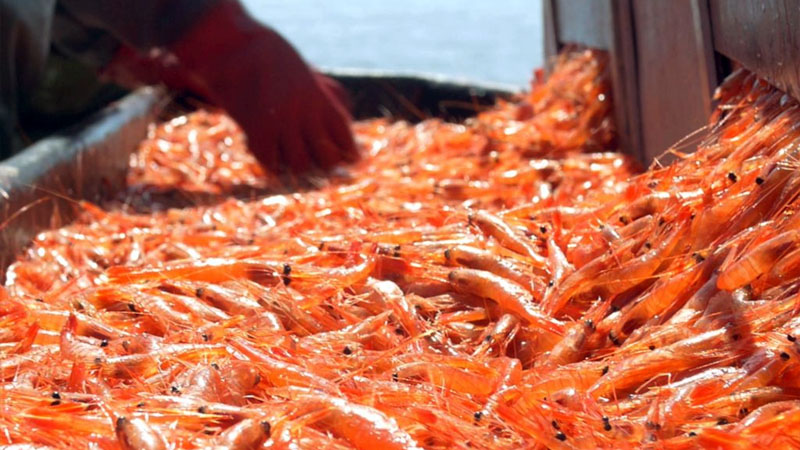Exclusive content

For the third consecutive year, the shrimp fishery off eastern Nova Scotia, Canada, is grappling with significant quota reductions, with adverse ocean conditions being identified as the primary culprit.
Concerns at Northsyde Processing Plant
The implications of these cuts extend to the Northsyde Processing plant owned by Louisbourg Seafoods in North Sydney, Cape Breton, where approximately 70 individuals are employed for peeling and cooking shrimp. Allan MacLean, the manager at the plant, expressed deep concern over the potential impact on employment opportunities due to the anticipated quota cuts.
The recent scientific assessment for northern shrimp on the eastern Scotian Shelf has highlighted environmental factors, notably warmer ocean waters attributed to climate change, as contributing to the deteriorating condition of the shrimp stock. MacLean emphasizes that these factors are likely to prompt a reduction in the total allowable catch.
Anticipated Quota Announcement by DFO
The Department of Fisheries and Oceans (DFO) is expected to unveil the 2024 shrimp quota in the coming weeks. MacLean anticipates a substantial cut, speculating that it could exceed 50 percent.
In response to declining stock conditions, Fisheries and Oceans had slashed the 2023 eastern Scotian Shelf quota by 25 percent, following a 12 percent reduction the previous year. Currently, there are 28 Maritimes region licenses issued in the fishery, predominantly for vessels less than 65 feet (20 meters) in length.
Warming Ocean Temperatures and Implications
Ocean monitoring by DFO has consistently shown warming temperatures throughout the water column on the Scotian Shelf. This trend has not only impacted shrimp but has also been linked to poor snow crab catches south of Halifax. MacLean notes parallels with the Gulf of Maine, where similar trends have been observed, including warmer temperatures and diminished recruitment.